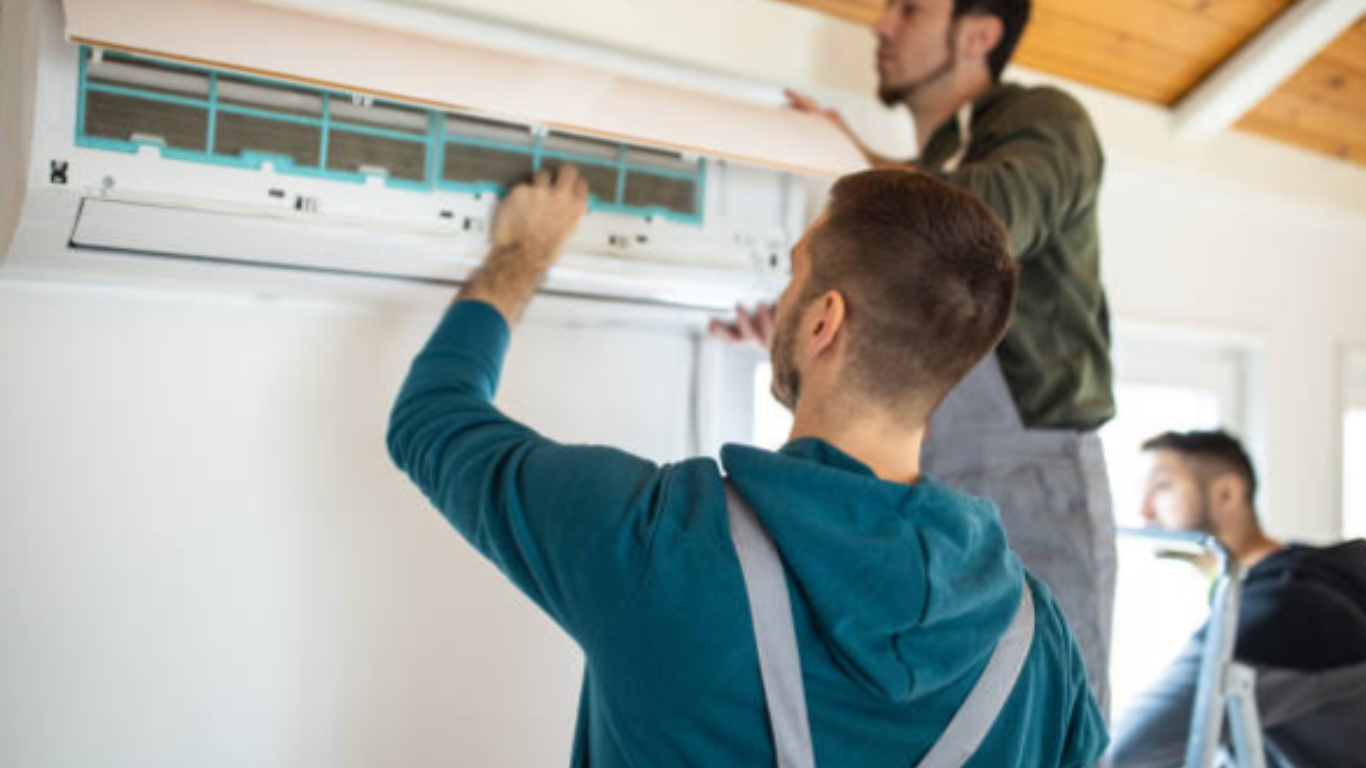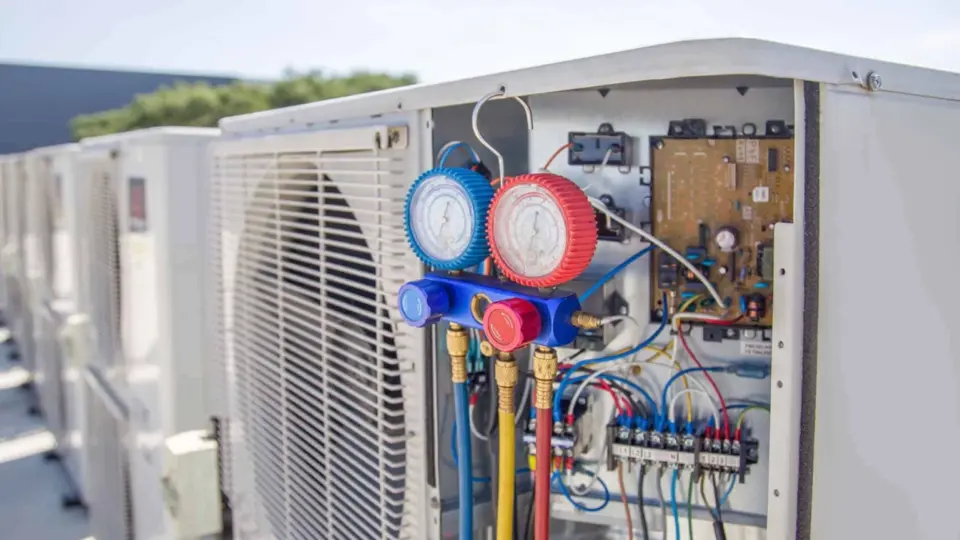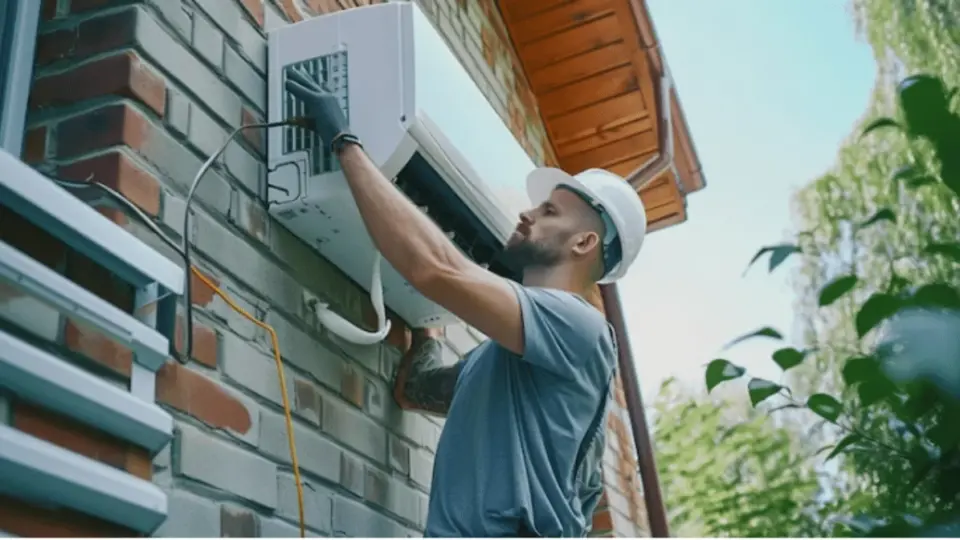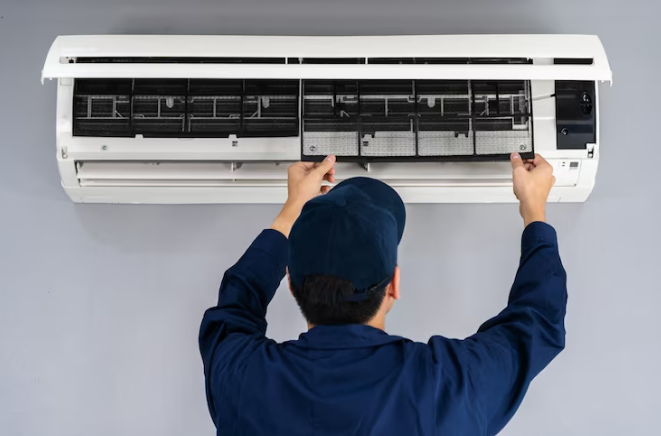When it comes to keeping your HVAC system in top condition, HVAC service contracts can be a game-changer. These contracts offer peace of mind by ensuring your heating and cooling systems are regularly maintained and serviced by professionals.
But with so many options available, how do you choose the right one? In this guide, we’ll break down what to look for in an HVAC service contract and how to make the best choice for your home or business.
From understanding the types of services included to evaluating the costs and benefits, we’ll help you make an informed decision that keeps your HVAC system running smoothly all year round.
What are the potential downsides of not having an HVAC service contract?
Not having an HVAC service contract can lead to several potential downsides that affect your HVAC system’s performance and longevity. Here are some of the main risks involved:
- Increased Repair Costs: With regular maintenance provided under a service contract, small issues can be noticed and develop into larger, more expensive problems. Emergency repairs typically cost significantly more than regular maintenance checks.
- Shortened System Lifespan: HVAC systems require regular upkeep to function efficiently. Neglecting routine maintenance can lead to premature system failure, necessitating costly replacements far sooner than would be necessary with proper care.
- Higher Energy Bills: An unmaintained HVAC system can lose its efficiency over time due to dirty filters, leaks, or aging components, which can increase energy consumption. This inefficiency translates into higher monthly energy bills as the system has to work harder to maintain the desired temperature.
- Voided Warranty: Many HVAC manufacturers require regular maintenance as a condition of their warranty terms. You can avoid voiding your warranty with a service contract that ensures consistent maintenance. You could be financially responsible for any major repairs or replacements that might otherwise have been covered.
- Poor System Performance: Lack of regular maintenance can lead to inconsistent temperatures, poor air quality, and reduced comfort in your home or office. This can affect the overall living or working environment.
- Increased Risk of Unexpected Failures: Without a service contract, an HVAC system is more susceptible to unexpected breakdowns, which can be particularly inconvenient during extreme weather conditions when the system is needed most.
While not having an HVAC service contract can save money in the short term, it often leads to higher overall costs and potential discomfort in the long run. Regular maintenance through a service contract is a proactive measure that keeps your system running efficiently and reliably.
How does an HVAC service contract typically affect the lifespan of my system?
An HVAC service contract can significantly affect the lifespan of your HVAC system in several positive ways:
- Regular Maintenance: Service contracts typically include scheduled maintenance visits that ensure your HVAC system is inspected and serviced regularly. During these visits, technicians can catch and fix minor issues before they develop into significant problems. Regular maintenance, such as cleaning the air filters, checking refrigerant levels, and inspecting electrical connections, helps keep the system running efficiently.
- Preventative Care: Many HVAC problems develop slowly over time and can be prevented with routine care. Service contracts facilitate the ongoing preventative maintenance necessary to avoid the wear and tear that can shorten a system’s lifespan.
- Efficiency Optimization: Regular service ensures that your HVAC system operates at peak efficiency. When a system is running efficiently, it experiences less strain during operation, which not only saves on energy costs but also reduces the overall wear on system components, extending the lifespan of the system.
- Warranty Compliance: Many manufacturers require proof of regular maintenance to keep warranty coverage valid. A service contract provides a documented maintenance history that can support warranty claims, ensuring that any necessary repairs or replacements are covered.
- Expert Oversight: With a service contract, experienced professionals monitor the health of your HVAC system. This expert oversight means that potential issues can be identified quickly and addressed properly, using the correct techniques and high-quality parts, further extending the life of the system.
An HVAC service contract promotes a more reliable, efficient, and longer-lasting HVAC system by ensuring regular professional care and preventative maintenance. This can significantly extend the lifespan of your system beyond what might be expected without such a contract.
Are there different tiers of HVAC service contracts, and how do they vary?
Yes, HVAC service contracts often come in different tiers to accommodate various needs and budgets. The specifics can vary between providers, but generally, these tiers differ in terms of the scope of services offered, frequency of maintenance, and cost. Here’s a basic outline of how these tiers typically vary:
- Basic or Bronze Tier: The most affordable level typically includes one or two annual maintenance visits. It covers basic checks and routine tasks such as cleaning or replacing filters, inspecting electrical components, and ensuring the system runs efficiently. This tier may offer limited emergency call-outs or provide them at a discounted rate.
- Silver Tier: A mid-level option that includes everything in the Basic tier, with benefits such as frequent maintenance visits (often biannually) and greater discounts on parts and labor for repairs. Silver-tier contracts also include priority scheduling for service calls, which are precious during peak seasons.
- Gold or Platinum Tiers: These are the most expensive and complete. They often include annual maintenance, free emergency calls, repair parts, and labor. Higher-tier services include comprehensive system diagnostics, ductwork inspections, and advanced system optimizations. These programs provide consumers priority for service calls and significant discounts on essential repairs and parts.
Choose an HVAC servicing contract based on tier circumstances and contents. Consider your HVAC system’s age, condition, usage, and budget. More detailed solutions can help older or heavily used HVAC systems. By understanding each tier, you can choose a service plan that matches your needs and keeps your system in shape while saving money on unexpected repairs and energy expenditures.
When is the best time to purchase an HVAC service contract for my system?
The best time to purchase an HVAC service contract is typically before you experience any significant issues with your system, ideally when the system is newly installed or still relatively new. Here are a few strategic considerations to determine the optimal timing for purchasing a service contract:
- After Installation: Service contracts might be advantageous after installing a new HVAC system. It maintains your system from the start, potentially prolonging its longevity and efficiency. Many manufacturers require frequent expert maintenance, which helps keep your system’s warranty.
- Before Peak Seasons: Get a service contract before severe weather, when your system works hardest. Most countries schedule service in spring before the summer heat and fall before the winter cold. This timing lets you detect and fix issues before they become critical, maintaining system uptime.
- During Promotions: Sometimes, HVAC companies offer special promotions or discounts on service contracts during certain times of the year, typically during their off-peak seasons when business is slower. Keeping an eye out for these deals can make the service contract more affordable.
- Before an Older System Begins to Fail: If your HVAC system is older but not yet worn out, a service contract may be beneficial. Regular maintenance can detect improvements or replacements before an emergency and prevent sudden failures.
- Renewal Considerations: If you already have a service contract, the best time to renew or consider a new contract is before your current one expires. Review the terms and the service you received, and if you’re considering a change, shop around or negotiate a new deal before you find yourself without coverage.
By timing your purchase of an HVAC service contract wisely, you can maximize the benefits, ensuring efficient operation, reduced repair costs, and greater comfort in your home throughout the year.





